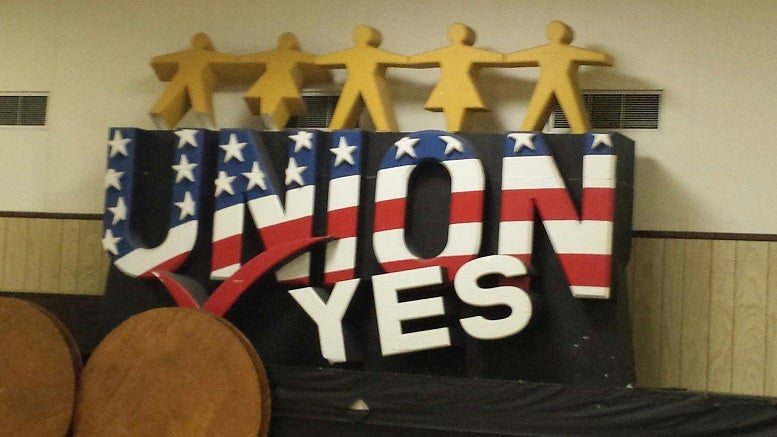Uncategorized
NLRB Counsel Says Companies Must Prove Need to Hire Permanent Replacements

The National Labor Relations Board’s top enforcement officer is proposing that companies must prove – not just state – that only by hiring permanent replacement workers can they keep going economically, after the firms force their own employees to strike.
If enacted, such a policy change would be a major advance for workers’ use of strikes. Needless to say, the company involved, United Site Services of California, is screaming about NLRB General Counsel Richard Griffin’s stand, contained in a brief submitted to the full NLRB. And the union in the case, Teamsters Local 315, is cheering Griffin on and has filed its own supporting brief, too, laying out the case against these scabs.
The case’s outcome is important. A board decision agreeing with Griffin and Local 315 would help show, as a practical matter, if strikes will again be a viable economic weapon for workers. That’s because there are two types of strikes, and the NLRB treats them differently:
- Strikes forced by employer labor law-breaking, formally called unfair labor practices strikes. The law-breaking forces workers to walk out. When the board or its officials rule that ULPs forced a strike, the employer cannot legally hire permanent replacements.
- Economic strikes, where the firm forces the workers to walk after talks about wages, benefits and working conditions break down. In economic strikes, the NLRB allows employers to hire “permanent replacements” to keep the business going.
Now, firms can assert “economic necessity” – keeping the doors open and production moving – to hire the replacements during economic strikes. But they don’t have to prove it. That gives them a big incentive to break strikes by hiring the permanent replacements.
Speaking for Local 315, pro-worker attorneys Andrew Baker and Lorrie Bradley of Oakland, Calif., went into more detail.
“The crux of” United Site Services’ “argument is the Supreme Court and the board recognized an employer’s hiring of permanent replacements is in and of itself the legitimate justification for hiring permanent replacements and denying striking employees their jobs upon conclusion of a strike,” Baker and Bradley said.
“This of course begs the question of why the employer hired permanent replacements in the first place. And this tautological reasoning – that the inherently destructive conduct is inherently legitimate – is exactly what is wrong with [existing precedent] and why the board should now overturn that mistaken decision.”
United Site Services’ “argument that the board lacks ‘statutory authority’ to adopt such a rule represents a gross misreading of the” National Labor Relations Act, they added.
The board has yet to rule on the United Site Services case.
- Press Associates, Inc., contributed to this report.